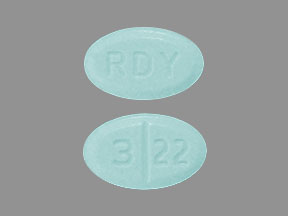Glimepiride Disease Interactions
There are 5 disease interactions with glimepiride.
Oral hypoglycemic agents (applies to glimepiride) cardiovascular risk
Major Potential Hazard, Moderate plausibility. Applicable conditions: Cardiovascular Disease
The use of oral hypoglycemic agents may be associated with an increased risk of cardiovascular mortality compared to treatment with diet alone or diet with insulin. This warning is based on the University Group Diabetes Program (UGDP) study, a long-term prospective clinical trial designed to evaluate the effectiveness of glucose-lowering drugs in preventing or delaying vascular complications in patients with non-insulin-dependent diabetes. Patients treated with diet plus a fixed dosage of either tolbutamide (a sulfonylurea) or phenformin (a biguanide) for 5 to 8 years had a cardiovascular mortality rate approximately 2.5 times that of patients treated with diet alone, resulting in discontinuation of both these treatments in the study. Despite controversy regarding interpretation of these results, clinicians and patients should be aware of the potential risk when making treatment decisions for diabetes, particularly in the presence of underlying cardiovascular disease. Data are not available for other sulfonylureas or biguanides, nor for hypoglycemic agents belonging to other classes. However, given the similarities in chemical structure and/or mode of action, the same caution should be applied.
Sulfonylureas (applies to glimepiride) renal/liver disease
Major Potential Hazard, High plausibility. Applicable conditions: Renal Dysfunction
Sulfonylureas are metabolized in the liver, and their metabolites (some with pharmacologic activity) are excreted in the urine and feces. Patients with impaired liver and/or renal function treated with sulfonylureas may be exposed to higher serum drug concentrations, which can increase the potential for severe hypoglycemic episodes induced by these agents. In the presence of hepatic impairment, gluconeogenic capacity may also be diminished, further compounding the risk. Therapy with sulfonylureas should be administered cautiously in patients with liver and/or renal disease. Reduced dosages and longer intervals between dosage adjustments may be required. Hypoglycemia, if it occurs during treatment, may be prolonged in these patients because of slowed metabolism and/or excretion of the drugs.
Insulin/oral hypoglycemic agents (applies to glimepiride) hypoglycemia
Moderate Potential Hazard, Moderate plausibility. Applicable conditions: Adrenal Insufficiency, Malnourished, Autonomic Neuropathy, Panhypopituitarism, Anorexia/Feeding Problems
Hypoglycemia may commonly occur during treatment with insulin and/or oral hypoglycemic agents. Care should be taken in patients who may be particularly susceptible to the development of hypoglycemic episodes during the use of these drugs, including those who are debilitated or malnourished, those with defective counterregulatory mechanisms (e.g., autonomic neuropathy and adrenal or pituitary insufficiency), and those receiving beta-adrenergic blocking agents.
Sulfonylureas (applies to glimepiride) G6PD deficiency
Moderate Potential Hazard, Moderate plausibility. Applicable conditions: G-6-PD Deficiency
Sulfonylureas can cause hemolytic anemia in patients with glucose 6-phosphate dehydrogenase (G6PD) deficiency. Therapy with these agents should be used with caution in patients with G6PD deficiency and consider the use of a non-sulfonylurea alternative. There have been postmarketing reports of hemolytic anemia in patients receiving these drugs who did not have known G6PD deficiency.
Sulfonylureas (applies to glimepiride) hyponatremia
Moderate Potential Hazard, Moderate plausibility. Applicable conditions: SIADH, Dehydration
Treatment with sulfonylureas may cause hyponatremia, in patients who are on other medications or have medical conditions known to cause hyponatremia or increase release of antidiuretic hormone. The syndrome of inappropriate antidiuretic hormone (SIADH) secretion has been reported with certain sulfonylureas and these drugs may augment the peripheral (antidiuretic) action of ADH and/or increase release of ADH. Caution should be used when treating patients with hyponatremia or at greater risk of developing hyponatremia such as elderly patients, patients taking diuretics or those who are volume-depleted.
Switch to professional interaction data
Glimepiride drug interactions
There are 505 drug interactions with glimepiride.
Glimepiride alcohol/food interactions
There is 1 alcohol/food interaction with glimepiride.
More about glimepiride
- glimepiride consumer information
- Check interactions
- Compare alternatives
- Pricing & coupons
- Reviews (71)
- Drug images
- Side effects
- Dosage information
- Patient tips
- During pregnancy
- Support group
- Drug class: sulfonylureas
- Breastfeeding
- En español
Related treatment guides
Drug Interaction Classification
| Highly clinically significant. Avoid combinations; the risk of the interaction outweighs the benefit. | |
| Moderately clinically significant. Usually avoid combinations; use it only under special circumstances. | |
| Minimally clinically significant. Minimize risk; assess risk and consider an alternative drug, take steps to circumvent the interaction risk and/or institute a monitoring plan. | |
| No interaction information available. |
See also:
Further information
Always consult your healthcare provider to ensure the information displayed on this page applies to your personal circumstances.


